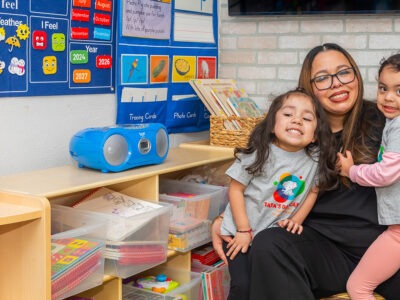Grief is not always loud. It may come quietly after the death of a grandparent, friend or a sibling, or appear more suddenly after a family separation. Sometimes it follows a collective tragedy, like community violence or natural disasters. Children grieve not only lost loved ones, but also the loss of their homes, routines and sense of safety. Even the disappearance of a familiar neighborhood or the canceling of milestone events can bring lasting emotional pain.
Studies show that unresolved childhood grief is linked to long-term struggles such as depression, anxiety and poor school performance. According to the Journal of the American Academy of Child and Adolescent Psychiatry, children who do not receive support after a loss are more likely to develop serious mental health challenges over time. That is why it’s important to talk openly about grief. Giving children the space to express their feelings helps them process complex emotions and prevents the kind of emotional buildup that can harm them later in life.
Supporting a grieving child requires compassion, presence and a few key tools. Here are five ways caregivers can help children move through loss and begin to heal:
Be honest and use clear language
Children need truthful, age-appropriate explanations. Avoid euphemisms like “went to sleep” or “passed away,” which can confuse or frighten them. Instead, say “They died.” This kind of clear language, recommended by the National Alliance for Children’s Grief, helps children understand what happened and trust the adults around them.
Normalize big feelings
Let children know it is ok to cry, to be angry or to say nothing at all. Reassure them with statements like, “You can feel whatever you need to feel, and I’ll be here with you.” This kind of emotional permission encourages healthy processing.
Stick to routines
In the middle of loss, familiarity brings comfort. Maintaining regular schedules for meals, school and bedtime gives children a sense of stability and safety when their emotional world feels uncertain.
Encourage expression through art and play
Children often express grief nonverbally. Drawing, movement, storytelling or music can offer safe ways to process feelings they might not be ready to explain. In Philadelphia, youth programs like those offered by the Institute for the Development of African-American Youth (IDAAY) integrate peer support, mentoring and creative outlets to help young people navigate trauma and grief. These types of healing-centered environments remind children that they are not alone and that their feelings matter.
Seek professional support when needed
Sometimes grief is complicated by trauma, multiple losses or silence at home. A trained counselor can help children name what they are feeling, build healthy coping skills and reconnect with hope. Counseling is especially critical for children who do not yet have the language or confidence to share openly.
Grief will always be part of life, but it does not have to define it. When we support children with honesty, empathy and resources, we give them the chance to heal with dignity and grow with resilience. For additional tools and guidance, parents and caregivers can visit the National Alliance for Children’s Grief.







Comments